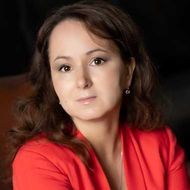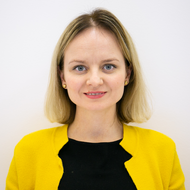Drivers of Progress and Sources of Revenue: The Role of Universities in Technology Transfer

In the modern world, the effective transfer of socio-economic and humanities-based knowledge to the real economy and public administration is essential. Universities play a decisive role in this process. They have the capability to unite diverse teams and, in partnership with the state and businesses, develop and enhance advanced technologies.
On November 5, 2024, the HSE Centre for Transfer and Management of Socio-Economic Information hosted an expert seminar titled ‘The Transfer of Socio-Economic Knowledge in a Changing World: Trends, Challenges, and Best Practices.’ The seminar featured experts from Algeria, Egypt, India, Iran, China, Pakistan, Tunisia, Ethiopia, as well as researchers from HSE University.
‘Knowledge transfer is a global development trend that is evolving today within the framework of the “new interdisciplinarity,”’ emphasised Anna Barsukova, Deputy Vice Rector of HSE University and analyst at the Centre for Transfer and Management of Socio-Economic Information, opening the seminar. ‘We see knowledge transfer as a tremendous opportunity for the development of technologies, social sciences, and partnerships between business, universities, and government,’ she noted.

Vera Vishnyakova
The Director of the Centre for Transfer and Management of Socio-Economic Information, Vera Vishnyakova, described the seminar as an opportunity for the international expert community to discuss trends and challenges in the transfer of socio-economic knowledge for universities, as well as best practices where social sciences have merged with STEM to create opportunities for generating new knowledge.
In her presentation on the specifics of technology transfer in Russia, Vera Vishnyakova highlighted the unique relationship between the Russian state and universities. ‘The state adopts strategic documents and, by funding support programmes for technology transfer, helps universities and industries focus their research topics in a way that aligns with the needs of public administration, the real economy, and the social sphere,’ she said. In this context, participants in the Priority 2030 Federal Academic Leadership Programme are required to achieve applied results from their research. Additionally, a state programme has been launched to support universities in developing technology transfer centres.
Vera Vishnyakova added that HSE is one of the leaders in these programmes: ‘Over the past two years, according to preliminary estimates, more than 600 commissioned projects in the socio-economic field have been implemented at HSE University, with over 300 clients involved.’ The Centre for Transfer and Management of Socio-Economic Information has developed digital ecosystems to support researchers in conducting studies and to simplify access to scientific materials, external scientific and informational resources, databases, and government support measures. However, challenges and issues in this area remain, influenced by many factors.
Vera Vishnyakova called on participants to collaborate, emphasising that ‘technology transfer for universities serves as a driver of scientific and technological development, creating a favourable environment for exploring new tools for international cooperation.’
Presentations by Seminar Participants:
Yu Cao, Executive Vice President of the Zhejiang Intellectual Property Exchange Centre, spoke about the Chinese government's policies on the registration and commercialisation of intellectual property rights, support measures for companies holding patents, the operations of data exchanges, and the implementation of a government-supported model for universities in the technology transfer process.
Professor Pradeep Srivastava, from the Technological Information, Forecasting and Assessment Council (India), shared his views on the positive impact of technology transfer on GDP. Using India as an example, he discussed collaborations in R&D projects, the promotion of technologies, and spin-off start-ups—subsidiary companies of universities and corporations.
Palak Khanna, a research associate at the Centre for Sustainable Research and Leadership in at the Energy and Resources Institute (India), presented an applied case in the agricultural sector in the clusters of Jharkhand and emphasised the significant role of women in this project.
Muhammad Naseem Khan Achakzai, Advisor to the Deputy Chairman of the Senate of Pakistan, shared examples of knowledge transfer initiatives, highlighted the key challenges faced by his country in developing this field, and called for active international cooperation in technology transfer.
Hend Allam, a lecturer at Tanta University (Egypt), described the implementation of an idea to connect hospitals with pharmaceutical and medical equipment companies through an analytical information system with the involvement of the government.

Anastasia Ugleva
In the concluding presentation of the seminar, Anastasia Ugleva, Deputy Director of the HSE Centre for Transfer and Management of Socio-Economic Information, shared best practices in the transfer of socio-economic and humanities research at HSE. These included the RuCLAB system for assessing Russian language proficiency in children, the SCT Linguatest multi-level language testing system, the Sociolit platform for analysing textual content, digital tools for modelling development scenarios for the Russian economy, and the SanctionsRuBase+ database, which tracks sanctions against Russia.

Sergey Kozarezov
During the discussion following the presentations, Sergey Kozarezov, Advisor at the AI and Digital Science Institute at HSE University, spoke about the latest trends in the use of Retrieval Augmented Generation (RAG). This AI technology is utilised for processing document and data corpora studied during the development of socio-economic products.
Participants also discussed the specifics of creating and commercialising datasets, as well as the shortage of data needed to train foundational models—a potential market for the creation and commercialisation of synthetic data, including for export.
At the conclusion of the seminar, participants proposed new tools for further collaboration on the topic of advancing technology transfer at universities.
See also:
‘HSE’s Industry Ties Are Invaluable’
Pan Zhengwu has spent the last seven years at HSE University—first as a student of the Bachelor’s in Software Engineering and now in the Master’s in System and Software Engineering at the Faculty of Computer Science. In addition to his busy academic schedule, he works as a mobile software engineer at Yandex and is an avid urban photographer. In his interview with the HSE News Service, Zhengwu talks about the challenges he faced when he first moved to Russia, shares his thoughts on ‘collaborating’ with AI, and reveals one of his top spots for taking photos in Moscow.
Scientists Present New Solution to Imbalanced Learning Problem
Specialists at the HSE Faculty of Computer Science and Sber AI Lab have developed a geometric oversampling technique known as Simplicial SMOTE. Tests on various datasets have shown that it significantly improves classification performance. This technique is particularly valuable in scenarios where rare cases are crucial, such as fraud detection or the diagnosis of rare diseases. The study's results are available on ArXiv.org, an open-access archive, and will be presented at the International Conference on Knowledge Discovery and Data Mining (KDD) in summer 2025 in Toronto, Canada.
Megascience, AI, and Supercomputers: HSE Expands Cooperation with JINR
Experts in computer technology from HSE University and the Joint Institute for Nuclear Research (JINR) discussed collaboration and joint projects at a meeting held at the Meshcheryakov Laboratory of Information Technologies (MLIT). HSE University was represented by Lev Shchur, Head of the Laboratory for Computational Physics at the HSE Tikhonov Moscow Institute of Electronics and Mathematics (HSE MIEM), as well as Denis Derkach and Fedor Ratnikov from the Laboratory of Methods for Big Data Analysis at the HSE Faculty of Computer Science.
AI vs AI: Scientists Develop Neural Networks to Detect Generated Text Insertions
A research team, including Alexander Shirnin from HSE University, has developed two models designed to detect AI-generated insertions in scientific texts. The AIpom system integrates two types of models: a decoder and an encoder. The Papilusion system is designed to detect modifications through synonyms and summarisation by neural networks, using one type of models: encoders. In the future, these models will assist in verifying the originality and credibility of scientific publications. Articles describing the Papilusion and AIpom systems have been published in the ACL Anthology Digital Archive.
HSE Researchers Develop Python Library for Analysing Eye Movements
A research team at HSE University has developed EyeFeatures, a Python library for analysing and modelling eye movement data. This tool is designed to simplify the work of scientists and developers by enabling them to efficiently process complex data and create predictive models.
‘Many Want to Create AI-Based Products and Become More Competitive’
In 2024, the online Russian-taught master’s programme ‘Artificial Intelligence,’ offered by the HSE Faculty of Computer Science, saw a record number of first-year students—over 300. What accounts for such a high interest in AI, how the curriculum is structured, and what new skills will graduates acquire? Elena Kantonistova, the programme’s academic director, shares more.
'I Would Like to Leave a Lasting Impact on Science'
Aibek Alanov pursues his own scientific research and leads two teams of scientists, one at HSE University and the other at AIRI. In this interview for the HSE Young Scientists project, he explores the parallels between today's AI researchers and early 20th-century physicists, discusses generative models, and shares his passion for bachata partner dancing.
HSE’S Achievements in AI Presented at AIJ
The AI Journey international conference hosted a session led by Deputy Prime Minister Dmitry Chernyshenko highlighting the achievements of Russian research centres in artificial intelligence. Alexey Masyutin, Head of the HSE AI Research Centre, showcased the centre’s key developments.
AI on Guard of Ecology: Students from Russia and Belarus Propose New Solutions to Environmental Problems
An international online hackathon dedicated to solving environmental problems was held at HSE University in Nizhny Novgorod. Students employed artificial intelligence and computer vision to develop innovative solutions for image segmentation, predictive modelling (forecasting future events based on data from the past) of emissions and creating chatbots for nature reserves and national parks.
Taming the Element: How AI Is Integrating into the Educational Process Around the World
Artificial intelligence is gradually becoming an indispensable part of higher education. Both students and teachers use it to reduce the volume of routine tasks and expand their capabilities. The limitations and prospects of AI are discussed in the report ‘The Beginning of the End or a New Era? The Effects of Generative Artificial Intelligence (GAI) in Higher Education,’ published in the journal Modern Education Analytics, under the scientific supervision of HSE Academic Supervisor Yaroslav Kuzminov.



